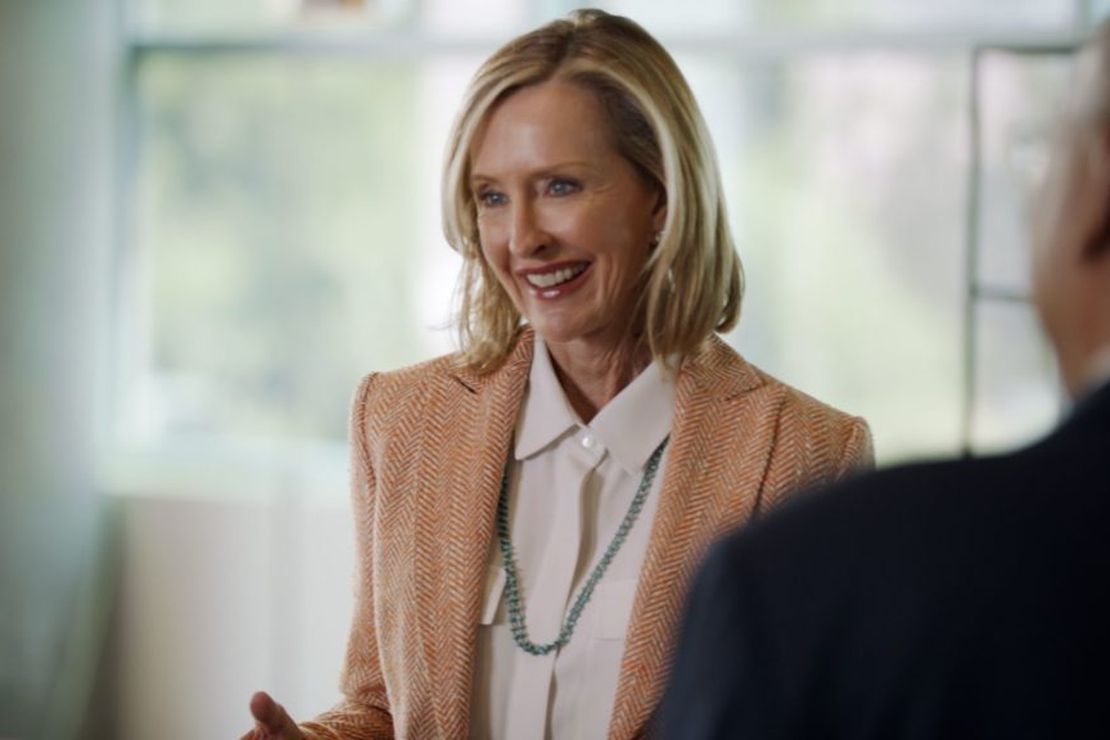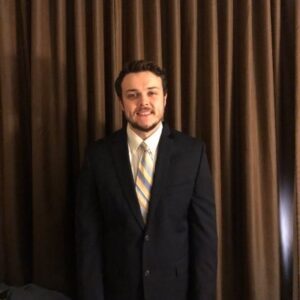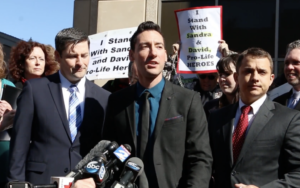Arizona Republican gubernatorial candidate Karrin Taylor Robson is the former president of Arizona Strategies (a land use strategy firm) and a former member of the Arizona Board of Regents. She talked with Cameron Arcand about free speech on Arizona’s public college campuses, the border crisis, and migration from California.
Cameron Arcand: Why do you want to make this switch from the private sector to public service?
Karrin Taylor Robson: Arizona’s under attack: our border is being overrun. We have everybody from Nancy Pelosi to Senator Schumer to Joe Biden trying to take over our elections and federalize them. I don’t like what the left is doing in our schools. If there was a silver lining at all with COVID, it’s that parents became acutely aware of what their kids are learning in school. I’ve been extremely blessed my whole life with opportunities to make a living for myself, raise my children, and I see those opportunities and the freedoms that we have for too long taken for granted, I see them under attack. I’m not gonna sit back and be a spectator and watch it happen.
CA: I’m an ASU student myself, and currently we have the green light from the Foundation for Individual Rights in Education, which essentially says we’re doing a pretty solid job with free speech. You served on the Board of Regents, which centers around higher-level public education. What are certain things that you did on the Board of Regents, and what are you planning to do as governor, in order to protect those free speech rights for students?
KTR: When I got on the Board of Regents, Arizona State University was the only university in Arizona with the green rating. I served for four years and before I left the board, all three of our universities now have a green rating, which I think is a great accolade, but it is just the beginning. My passion on the board was specifically for free speech, First Amendment and civic education. So one of the first things I did, knowing that ASU is the largest university in the country and having the green rating, I thought while no university is perfect, when it comes to free speech, ASU has a responsibility and an opportunity to lead. And so that’s when I conceived of the Regents Cup, which is a competition between our three universities, much like the Territorial Cup is for football. The Regents Cup is about free speech and the First Amendment.
I brought the private sector in to support scholarships for the Regents Cup, and all three universities now field … debate teams, who are selected in the summer for the fall semester, when they have a class on free speech and debate, and then they compete each spring for pretty significant scholarship money. What makes this debate competition unique is that each and every year, it will be specifically focused on free speech and the First Amendment.
There was an attempt one of the years by coaches at the universities to wander into … timely political topics, and I said, “No, no, no, there’s plenty of debates for those.” After two years of being on the Board of Regents, I was recognized nationally by the American Council of Trustees and Alumni for my work in free speech and the First Amendment. So that’s been a passion of mine.
The second and related part of that is civics education. I was shocked and disappointed to find out that we didn’t have any requirements in our general education curriculum for American history, American government, American economic institutions. So I’m proud to say that has now changed. I also have to be honest and say that wasn’t easy. There was a lot of back-and-forth between myself and members of the board and the academic side of our universities, but at the end of the day, we prevailed and our students are now required to take six hours of courses from American history, American government, American institutions, including the founding documents. So that is a passion project of mine.
CA: So I’m from California. A lot of other ASU students are from California as well. They’re not exactly the beacon of free speech, but a lot of us came here for a reason — not just college students, but also residents in general — who are fleeing the state of California and are coming to Arizona and other red states. There is a concern, though, that we’re coming to Arizona and we’re turning the state blue. I think there is some merit to that. But how do you plan to keep Arizona values in Arizona?
KTR: You landed on a very important question. What I tell people is, I believe Arizona is red at heart, because when you look at the fact that 70% of our adult population came from somewhere else, that tells me they came — they left their homes, their families, their traditions, their jobs, they left everything behind — to come to a place that is still free, a place where it’s still a meritocracy. If you work hard and treat people well, you can make it to the top of whatever you want. So Arizona in a way is a microcosm of America. But that being said, we now have a state that is essentially a third Republican, a third Democrat and a third independent.
So anybody leading this state is going to have to have an appeal to that third in the middle. We have to constantly remind people why they came to Arizona, right? People came here because they’re seeking freedom, they’re seeking an opportunity to work and make their lives and their children’s and families’ lives better than the place they left. So that will be, I believe, a hallmark of who I am and what I want to do when I lead.
I was joking with some folks the other night; we’re going to have a little handbook that we’re going to hand out for people coming across — the California refugees in particular — that says, “This is how you become an Arizonan. Number one: Don’t forget why you left.”
Growth pressures bring real complex challenges from transportation to education, to water, to infrastructure policy — you know, who’s going to pay for all these things? My almost 30 years in the private sector, navigating some pretty complex challenges like that, allow me to lead on day one on real substantive issues. … Being governor is not for somebody who needs on-the-job training on pretty significant, complex, substantive issues.
CA: We also have a bit of a population uptick from people who are not legally coming here to the United States. We have an average of 5,700 people coming across the border each day as of December 2021. This is a federal issue, but the Yuma sector, in particular, has seen a whole bunch of issues lately. What is your plan as a governor to secure the border, which is typically within the realm of the federal government?
KTR: It is a priority of mine. I’ve been down there a lot. In fact, I’m going back down there on Wednesday because I just decided, you know, depending on what channel you turn on, you get a different picture of what’s going on down there. If you don’t have a border, you don’t have a country. When you go down there and you see the human tragedy that is unfolding, and you come face-to-face with the human smuggling and the sex trafficking and the drug trafficking, you quickly realize that this is a 50-state border war, not just Arizona. We just happen to be on the front lines. I have issued my border plan, where we will surge the National Guard. We have them down there now, but we need more resources. I will call an emergency session of our legislature as soon as I take office, because we have to find the resources necessary to fortify the local law enforcement and border sheriffs. I don’t believe in creating a whole new judicial system to handle the backlog of cases down there. We need to provide resources to the system that we already have.
We need to construct the wall where we can, and the wall is not just a physical barrier. It’s a system that includes fiber optics, drones and sensor technology, and all of those things work in concert to secure the border. In Arizona, we’ve got a very different situation than other states because the path of our border is federal and tribal land. We have approximately 160 miles of private land and about 20 miles of state land.
I also have been very clear that we’ll revoke funding from any sanctuary city. If the city wants to claim sanctuary status, they’re gonna be on their own because we’re gonna do everything we can to defund that city.
Related: Border State Governors Take Security Into Their Own Hands
CA: I wanted to close this interview out on a much lighter note. We just kind of talked about free speech and the border and all these different issues. But this week, Arizona is celebrating its statehood. What would you say to someone who’s new to this state or someone who’s a lifelong Arizonan? What is maybe your favorite part about this state? What makes you tick?
KTR: Oh, wow. I can go on and on. I mean, it’s the people, right? The people of Arizona are so welcoming. … You don’t have to be fifth-generation blue blood, having gone to all the right schools. If you come here and you treat people well, there’s no limit to what you could achieve in Arizona. So that’s probably at the top of my list, but I love the Arizona landscape and geography, where you’ve got dessert, you’ve got forests, you’ve got all sorts of recreation opportunities. I’m a big hiker. I love to hike. I love the outdoors. There are days when I wish I worked for the Chamber of Commerce, where I could just share and show off the beauty of the state of Arizona.






